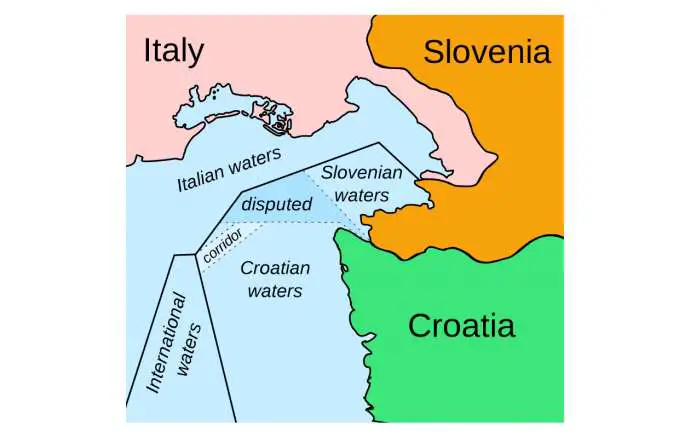STA, 6 June 2020 - Ten years have passed since the referendum in which Slovenians expressed support for the border arbitration agreement with Croatia. After a fierce campaign, the arbitration received the green light in a narrow vote. But despite great expectations, the countries are still on opposite sides a decade later.
The arbitration agreement was signed by the then prime ministers Borut Pahor and Jadranka Kosor in Stockholm on 4 November 2009 following almost two decades of failed border talks.
The agreement envisaged taking the issue of both land and sea border to the arbitration tribunal. The tribunal was also to decide on Slovenia's junction with high seas and a regime for the use of maritime zones.
The agreement was reached following an intervention from the EU to overcome the impasse created by Slovenia's blockade of Croatia's EU accession. Slovenia argued that Croatia was predetermining the border between the countries in the documents it submitted to the EU during accession talks.
The Slovenian parliament ratified the arbitration agreement in April 2010 but decided to nevertheless put the matter to a referendum on 6 June, arguing "this is such an important issue that the final decision should be made by the people".
A total of 51.54% of voters backed the agreement and 48.46% were against. The turnout was 42.66%.
In the campaign, the opponents of the agreement - the then opposition Democrats (SDS), People's Party (SLS), National Party (SNS) and the Institute 25 June - argued the deal posed a risk to Slovenia's national interests, while the advocates - the Social Democrats (SD)-led coalition - claimed the agreement was the best possible solution, protecting Slovenia's interests and guaranteeing it access to the open sea.
President Pahor labelled that time as a period of "extraordinary concerns, stress, responsibility, focus but also happiness because of successes on this path" in a recent statement for the STA.
He said he had no doubt the referendum would be a success. "I simply did not see any other option, alternative to us succeeding."
In the years that followed, all deadlines from the agreement were honoured, but in 2015 it became clear that Croatia had made a false promise.
In July that year, the Croatian newspaper Večernji List published a recording of phone conversations between Slovenian member of the arbitration tribunal Jernej Sekolec and Slovenian agent in the case Simona Drenik discussing details of the tribunal's confidential deliberations.
The scandal prompted the pair to step down and Croatia withdrew from the arbitration process, calling it compromised, although the tribunal later decided to resume its work.
Later it transpired that Sekolec and Drenik were tapped by the Croatian Intelligence Service (SOA).
The arbitration tribunal declared its final decision on the border on 29 June 2017, awarding Slovenia the bulk of the Bay of Piran, as well as a belt extending 2.5 nautical miles in width, which would be Slovenia's junction with the open seas. The border on land largely followed the demarcation of cadastral municipalities.
Although the decision gave neither side everything it wanted, Slovenian politicians were united that it was biding and must be implemented while Croatia insisted on rejecting it.
Zagreb would like the countries to engage in bilateral talks again but Slovenia has so far rejected this option. Current Foreign Minister Anže Logar said when he started his term that the tribunal's decision was clear and that legal decisions of international tribunals must be respected.
However, during his hearing in parliament before taking office he proposed appointing a special envoy for Croatia, noting it was time for quiet diplomacy.
A decade after the arbitration referendum Pahor remains optimistic. "I know some still think today that Slovenia should have got more when it comes to the border but many thought so for 18 years but were not successful. Now the border has been set, Croatia will acknowledge it sooner or later," the president told the STA.






